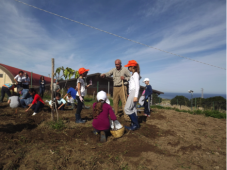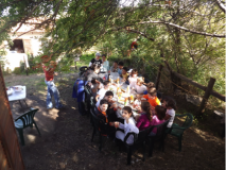Planning the Organic Garden
May 28, 2013
Contributor: Municipality of Messina- RIOS Association (Intercultural Network of Organic Gardens for Sustainability)
Workshop:
Social inclusion, job creation, economics / Involving various population groups in sustainable food transition
An interdisciplinary project with the schools for intercultural education about food, the environment and sustainability for agriculture that connects the land with its inhabitants.
The “Planning the Organic Garden” is a pilot project in Messina that aims to put together various experiences of the schools, the university, and associations for an intercultural education about the environment, food and sustainability. The duration of the project is one year.
The project aims to join the theoretical aspect that is taught in the schools with practical applications and knowledge about the environment and agriculture to promote sustainable behaviors and better life styles.
The result of the project was to teach children about cultivation practices and the benefits of organic agriculture. A particular target was to teach the difference between traditional cultivation and permaculture. In addition, the children learned the secrets of farm animals, bees and medicinal plants.
The main benefit was to strengthen the links between schools, universities and the territory, but the most important social benefit was to teach children that it’s possible to work for a culture of peace through the culture of the land, so that all those who work the land in an environmentally friendly way also work for peace.
Pro: more time for open air hands-on practice for the children.
Contra: the project was based on the commitment of volunteers, but to disseminate it on a large scale the economic support of the public administration is necessary.
The practice demonstrates that it is important to educate children to know nature and the environment. To know the products of the earth can be the best way to educate children about eating a varied and complete diet.
For us it could be important to know similar experiences implemented on a large scale.

